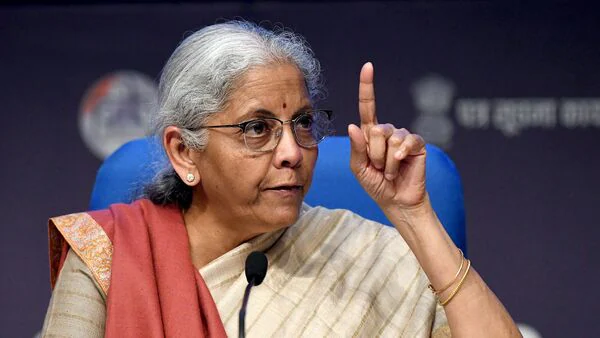Union Budget 2025 Unveiled: Tax Reforms and Strategic Investments to Propel India’s Economic Renaissance
In a move that promises to redefine India’s fiscal landscape, Union Finance Minister Nirmala Sitharaman has rolled out the Union Budget 2025 with a focus on comprehensive tax reforms and strategic capital investments. Central to this budget is the revamp of the income tax structure, which is set to benefit over 1 crore Indians by reducing tax liabilities and boosting disposable incomes. This initiative is poised to stimulate economic activities across the nation by channeling additional funds into consumption, savings, and strategic investments.
Income Tax Overhaul: A Boost for 1 Crore+ Indians
The highlight of the Union Budget 2025 is the overhaul of the income tax slabs. By reconfiguring the tax brackets and increasing the exemption limits, the government is providing a much-needed relief to a broad spectrum of taxpayers, especially the middle-income groups. This change is expected to significantly cut down the tax burden, enabling individuals to retain more of their earnings. For some taxpayers, the relief could be as high as Rs 12 lakh, providing an immediate boost to personal finances and consumer spending power.
The simplified tax structure is not only aimed at easing compliance for taxpayers but also at fostering an environment where increased disposable income translates into economic growth. With fewer deductions and a more straightforward system, the benefits of these reforms are expected to reach a wider audience across India.
Catalyzing Consumption and Savings with Tax Relief
The anticipated tax savings are expected to have a profound impact on the economy. With extra funds at their disposal, households are likely to ramp up spending on essential goods and services, thereby energizing key sectors such as retail, real estate, and automotive industries. This surge in consumer spending can lead to increased production and job creation, addressing economic slowdowns and bolstering overall growth.
Moreover, the additional disposable income is projected to enhance the savings rate among individuals. Higher savings can serve as a catalyst for future investments, both at the micro and macro levels. This dual benefit—boosting current consumption while setting the stage for future investments—creates a balanced approach to economic revival.
Empowering MSMEs and Inviting Global Capital
MSMEs have long been the backbone of India’s economy, driving innovation and creating jobs. Recognizing this, the Union Budget 2025 has included targeted measures to ease the tax burden on these enterprises. By providing fiscal incentives and reducing operational costs, the budget aims to empower MSMEs to expand their operations and compete more effectively in both domestic and international markets.
In parallel, the budget is designed to attract greater foreign direct investment (FDI). With improved tax policies and a more favorable regulatory framework, India is set to become an even more attractive destination for global investors. The influx of FDI is expected to spur technological advancements, generate employment, and enhance overall productivity across various industries.
Infrastructure Capex: Building the Backbone of Future Growth
An essential component of the Union Budget 2025 is the focus on increasing capital expenditure (capex). The government has outlined ambitious plans to invest in critical infrastructure projects that include upgrading road and railway networks, modernizing urban infrastructure, and expanding connectivity. These investments are not only intended to improve public amenities but also to create a solid foundation for sustainable economic growth.
By bolstering infrastructure, the budget aims to reduce logistical inefficiencies, lower business costs, and foster an environment that is conducive to both domestic and foreign investments. This focus on capex is integral to building a resilient economic backbone that can support rapid growth and innovation in the years to come.
Union Budget 2025 marks a pivotal moment for India as it embarks on a path of comprehensive fiscal reforms and strategic investments. The restructured income tax slabs, aimed at benefiting over 1 crore taxpayers, are expected to drive increased consumer spending, boost savings, and pave the way for higher investments. Coupled with targeted support for MSMEs, attractive FDI measures, and an aggressive capex strategy, the budget is poised to usher in a new era of economic renaissance. As these reforms take effect, India is set to emerge as a stronger, more dynamic, and future-ready economy.






